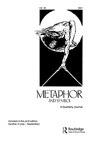Different Metaphorical Orientations of Time Succession between Traditional Chinese Medicine and Western Medicine
IF 3.3
3区 文学
0 LANGUAGE & LINGUISTICS
引用次数: 2
Abstract
ABSTRACT Speakers of different languages perceive time differently depending on various factors such as age, pace of life, religion, time of day, and even pregnancy. In recent years, studies have shown that this is the case even within one same language community. This article presents research showing that doctors in China differ in their perception of time, based on their specific background training, traditional Chinese medicine (TCM) or Western medicine (WM), even when both categories speak the same mother tongue. An initial questionnaire showed that TCM doctors were significantly more vertically oriented than WM doctors. To test these findings’ generalizability, we designed a spatial priming experiment (using horizontal and vertical pictures as priming stimuli) to obtain reaction time and accuracy of the doctors’ response on horizontal and vertical questions. TCM doctors showed significantly shorter reaction times and higher accuracy rates than WM doctors when answering vertical questions. These results confirmed the findings of our first survey. Overall, this study provides support for the hypothesis that background training affects the perception of time succession.中西医时间序列的不同隐喻取向
不同语言的使用者对时间的感知不同,这取决于各种因素,如年龄、生活节奏、宗教、一天中的时间,甚至怀孕。近年来,研究表明,即使在同一个语言社区内,情况也是如此。本文的研究表明,中国医生对时间的感知不同,这取决于他们的特定背景训练,即中医或西医,即使这两类医生说的母语相同。一份初步的问卷调查显示,中医医生比西医医生更倾向于纵向。为了测试这些发现的可推广性,我们设计了一个空间启动实验(使用水平和垂直图片作为启动刺激),以获得医生对水平和垂直问题的反应时间和准确性。中医在回答纵向问题时的反应时间和准确率明显短于西医。这些结果证实了我们第一次调查的结果。总的来说,这项研究为背景训练影响时间序列感知的假设提供了支持。
本文章由计算机程序翻译,如有差异,请以英文原文为准。
求助全文
约1分钟内获得全文
求助全文
来源期刊

Metaphor and Symbol
Multiple-
CiteScore
2.90
自引率
0.00%
发文量
23
期刊介绍:
Metaphor and Symbol: A Quarterly Journal is an innovative, multidisciplinary journal dedicated to the study of metaphor and other figurative devices in language (e.g., metonymy, irony) and other expressive forms (e.g., gesture and bodily actions, artworks, music, multimodal media). The journal is interested in original, empirical, and theoretical research that incorporates psychological experimental studies, linguistic and corpus linguistic studies, cross-cultural/linguistic comparisons, computational modeling, philosophical analyzes, and literary/artistic interpretations. A common theme connecting published work in the journal is the examination of the interface of figurative language and expression with cognitive, bodily, and cultural experience; hence, the journal''s international editorial board is composed of scholars and experts in the fields of psychology, linguistics, philosophy, computer science, literature, and media studies.
 求助内容:
求助内容: 应助结果提醒方式:
应助结果提醒方式:


